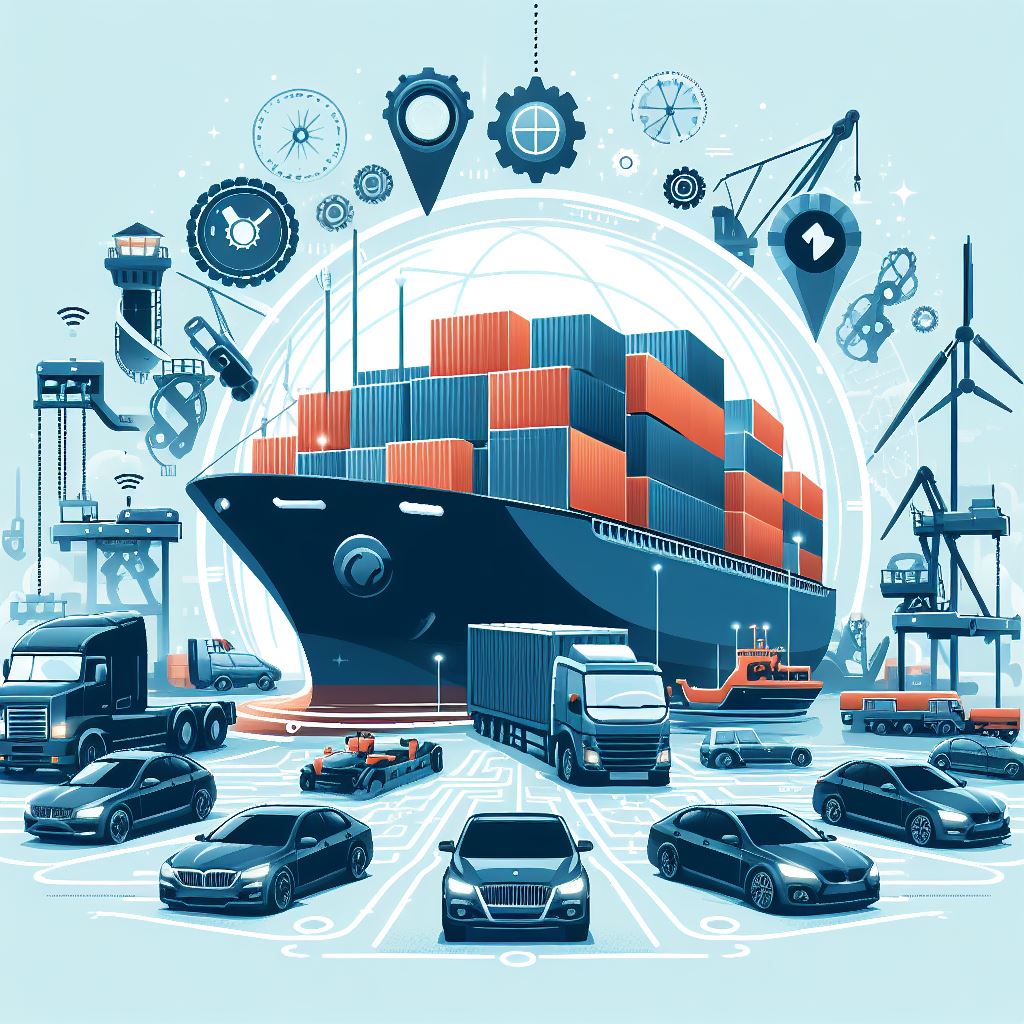

Essential Guide for Car Manufacturers, Car Dealers and Traders: Mastering the Art of Bulk Shipping for Cars & Vehicles
In today’s rapidly evolving automotive industry, car makers, car dealers, and traders frequently face the challenge of transporting vehicles in bulk across various distances. This comprehensive guide aims to demystify the process, offering practical tips and strategies to manage bulk shipping of cars and vehicles effectively. Whether you’re a seasoned dealer or a newcomer to the trade, mastering the art of vehicle logistics is key to maintaining a competitive edge.
Understanding the Current Landscape of Vehicle Transportation
- Historical Context: Vehicle shipping has a long history dating back to the early 20th century when the automobile industry was in its infancy. Initially, cars were often disassembled and shipped in crates to be assembled at their destination. The introduction of Roll-on/Roll-off (Ro-Ro) vessels emerged in the 1940s and revolutionized the industry, making it far more efficient. These ships were specifically designed for easy loading and unloading of wheeled cargo.
- Specialized Car Carriers: Dedicated car carriers, utilizing advanced Ro-Ro technology and equipped with multiple decks and the ability to carry a large number of vehicles, became more common. These ships were specifically designed for transporting cars over long distances.
- Container Shipping Evolution: In the 1970s, container shipping gained prominence, offering a secure way to transport cars (multiple cars in a container) as well as transporting high-value vehicles (single high-value car per container) internationally.
- Growth of Globalization: The globalization of the automotive industry has been a driving force behind the need for bulk vehicle shipping. Car manufacturers and dealerships often operate on a global scale, necessitating the transportation of vehicles across continents and oceans.
- Technological Advancements: Over the decades, advancements in shipping technology, logistics, and vehicle handling have significantly improved efficiency and safety in vehicle transportation.
The Process: This involves several steps, including choosing the right shipping method, preparing vehicles for transport, understanding customs and regulatory requirements, and ensuring efficient logistics.
Understanding Your Shipping Needs
- Vehicle Types: Determine the types of vehicles you’ll be shipping. This could include cars, trucks, SUVs, or even specialty vehicles like luxury cars or electric vehicles.
- Quantity: Calculate the number of vehicles you need to ship in bulk. Accurate numbers are crucial for selecting the right shipping solution.
Choosing the Right Shipping Method
- RoRo (Roll-on/Roll-off) / Car Carrier Shipping: Ideal for new vehicles. Cars are driven directly onto the ship, which is akin to a large parking lot on water.
- Container Shipping: Suitable for high-value vehicles. Cars are placed in containers, providing additional security and protection.
- Break Bulk Shipping: Used for oversized vehicles or those that cannot be driven onto a ship.
Finding Reliable Car Shipping Services
- Research and vet car shipping companies with experience in bulk vehicle transport. Check for licenses and insurance to ensure your vehicles are protected during transit.
- Request quotes and compare rates to find cost-effective shipping solutions.
Preparing Vehicles for Shipping
- Ensure vehicles are in good condition. Conduct thorough inspections of each vehicle before shipping. Document any existing damage to avoid disputes later.
- Disable alarms, immobilize fuel, secure or remove loose parts, and batteries are disconnected to prevent any potential hazards.
- Clean vehicles to avoid quarantine issues in certain countries.
Navigating Customs and Regulatory Requirements
- Understand and comply with the import and export regulations of the countries involved.
- Ensure all necessary documentation, like the bill of lading, is accurately filled out and submitted.
Logistics and Coordination
- Plan the logistics meticulously, considering the best routes and transit times.
- Coordinate with shipping companies for the best rates and services.
Tracking and Communication
- Maintain open communication with the shipping company. Track the progress of your shipment and ensure timely updates.
Insurance and Risk Management
- Secure comprehensive insurance for the vehicles during transit.
- Understand the liabilities and coverage to protect against any damages or losses.
Cost Considerations
- Analyze the costs involved in different shipping methods.
- Consider factors like shipping distance, vehicle size, and additional services.
- Keep a close eye on shipping costs and budget accordingly. Unexpected expenses can impact your profit margins.
Receiving and Inspection at Destination
- Upon arrival, thoroughly inspect each vehicle for any damage that may have occurred during transit.
- Document any issues and communicate with the shipping company promptly to address any claims.
Legal and Regulatory Compliance
- Stay updated on transportation laws and regulations in both your origin and destination locations.
- Ensure that your bulk shipping process complies with environmental standards and safety regulations.
Environmental Considerations
- Choose shipping methods that minimize environmental impact.
- Consider fuel-efficient and eco-friendly shipping options.
In Conclusion: Successfully managing the bulk shipping of cars and vehicles is a complex but manageable task. With careful planning, understanding of shipping methods, and coordination with reliable shipping partners such as those found on chartership.com, car manufacturers, car dealers, and traders can ensure a smooth and efficient shipping process. This not only helps in maintaining the quality and value of the vehicles but also enhances business operations and customer satisfaction.
Add a comment Cancel reply
Comments (0)
Related posts


LNG Tanker Valuation: What Influences the Sale Price?

Buy and Sell Offshore Vessels






